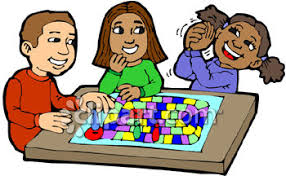
An area that requires active participation of the home is the mathematics education of children. Mathematics as a subject is essential for children to appreciate the beauty of nature, think logically and make sound judgment . The home should show some concern and willingness to act in order to correct accumulated myths about the difficulty of mathematics as a school subject and avoid the influence of faulty foundations in mathematics that may impede children’s future development. With adequate support from the home, pupils can be encouraged to master the automatic procedures, skillful manipulations and the sense of logic that mathematics is known for.
One of the reasons the whole world is attracted to the educational system of Finland is the sense of responsibility shared by all stakeholders in the upbringing of children. One of the most striking facts about Finnish schools is that their students have fewer hours of instruction, observe long summer holidays, thereby apportioning bigger roles to the home. The Finnish system adopts a holistic approach to education with parents wanting a family-friendly approach that also holds high respect for teachers. The Finnish school system is inseparable from the culture which it serves. In this sense, children’s education is continuous based on the full involvement of the home and the outcome is a fine balance between quantity and quality.

Homes and families have the direct and lasting impact on children’s mathematics learning and development of social competence. When parents are involved, pupils achieve more, exhibit more positive attitudes and behaviour, and feel more comfortable in new settings. One of the best things parents can do to improve their children’s mathematics literacy is to regularly expose them to practical applications of mathematics at home which can help them develop mathematical reasoning. The home can help pupils merge what they observe, discover and learn outside the classroom with the theoretical and abstract mathematics they learn in school. Such practical mathematics is readily available in the estimation of resources at home, the use of money for daily expenditure, available games in the community and even in the cultural practices of the society.
Apart from normal activities in the home, parents and guardians can work with children’s school teachers to facilitate their children’s mathematics learning. Two reasons why parents-teachers collaborations are likely to be the most profitable. First, children generally want to please both their parents and their teachers. If they see that mathematics is important to both their parents and their teachers, they will consider it important for themselves too. Second, extending mathematical concepts from the classroom to the home will establish the idea that mathematics is not just a school subject, but an everyday subject that makes life more interesting and understandable. Teachers can provide assistance in: 
- Setting up a system of home study;
- Helping parents understand the sequencing of mathematical skill development;
- Suggesting materials and activities that are entertaining and suitable for their child’s level and which can be done in a reasonable amount of time;
- Providing clear guidelines on how to use materials;
- Giving feedback on the successes and failures of home activities; and
- Knowing when to stop working with a child on an activity so that a good working relationship is maintained.
Generally, emphasis on the role of the home in mathematics education of children dwells on the need for parents and guardians to give more time to children, providing them a supportive environment at home, encouraging their mathematics learning and discussing with them about their problems in the subject. Parents are to keep watch on the children’s activities, help improve their study habits and maintain a positive disposition while advising them. Even for parents who themselves found mathematics difficult, there should be a decisive effort to set aside such distaste, avoid talking negatively about the subject, and seek collaboration to instill the love of mathematics in their children.


